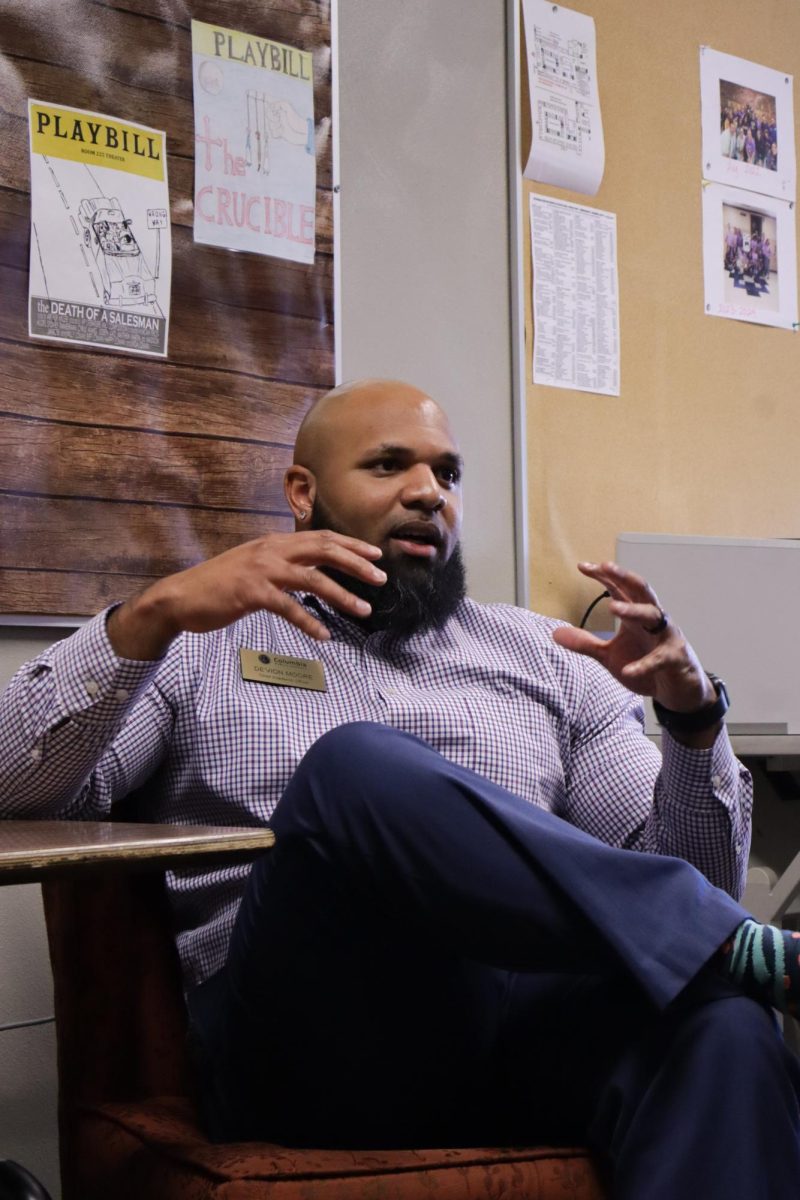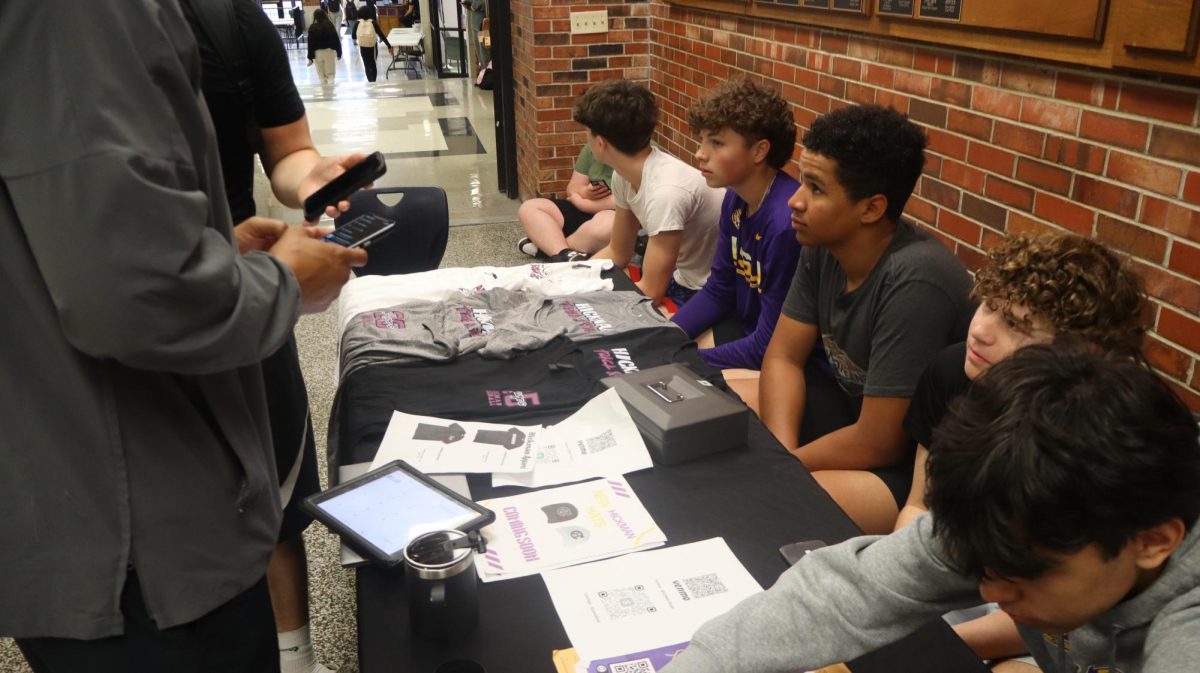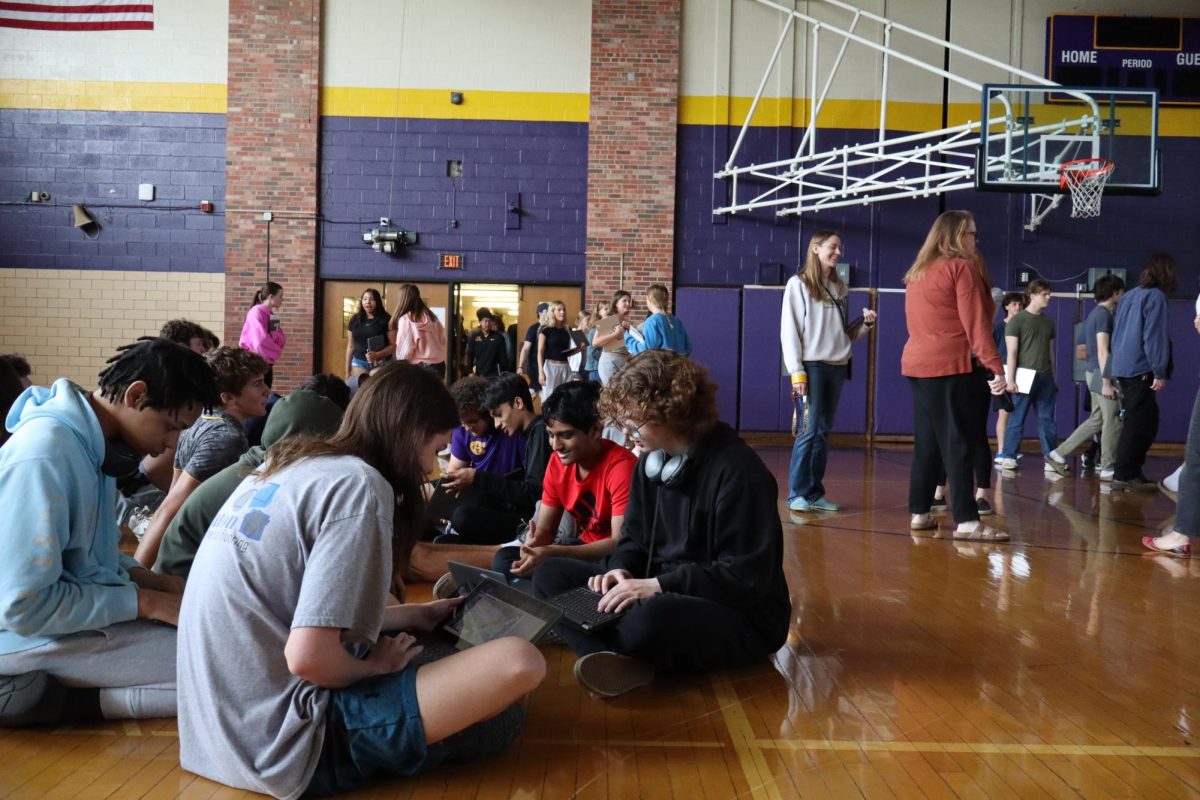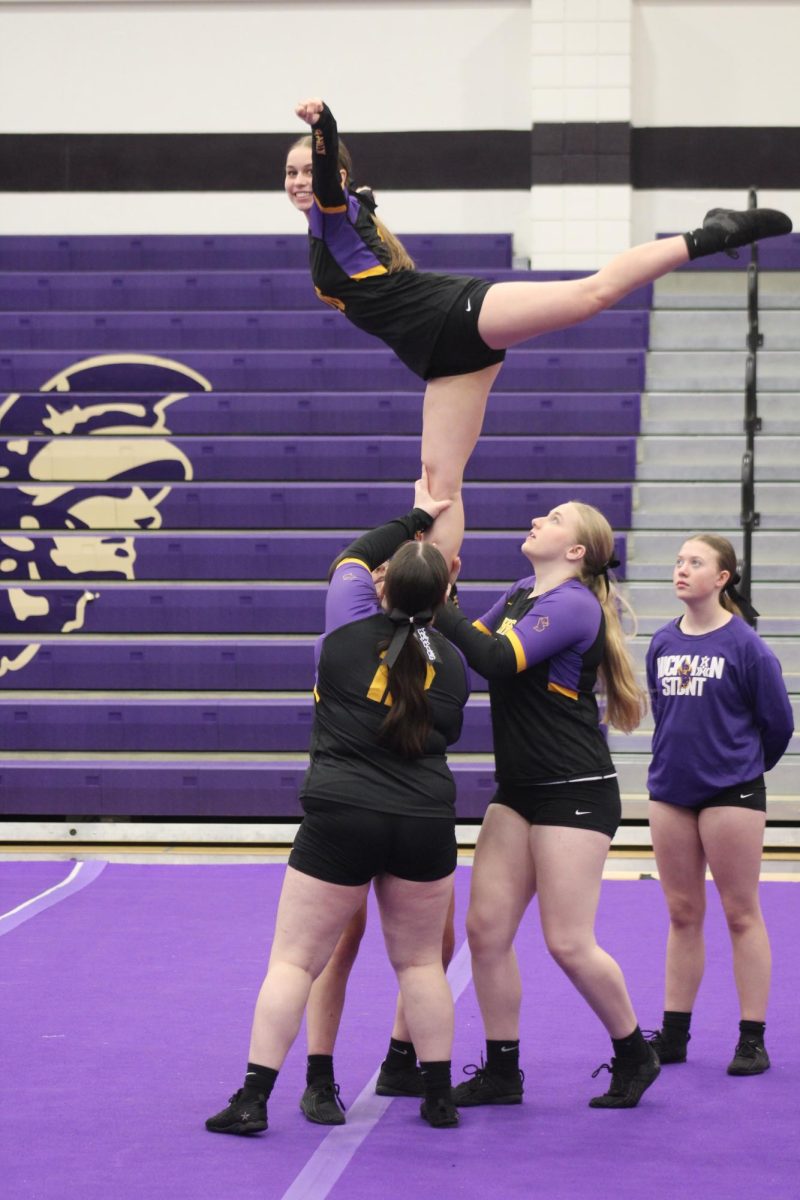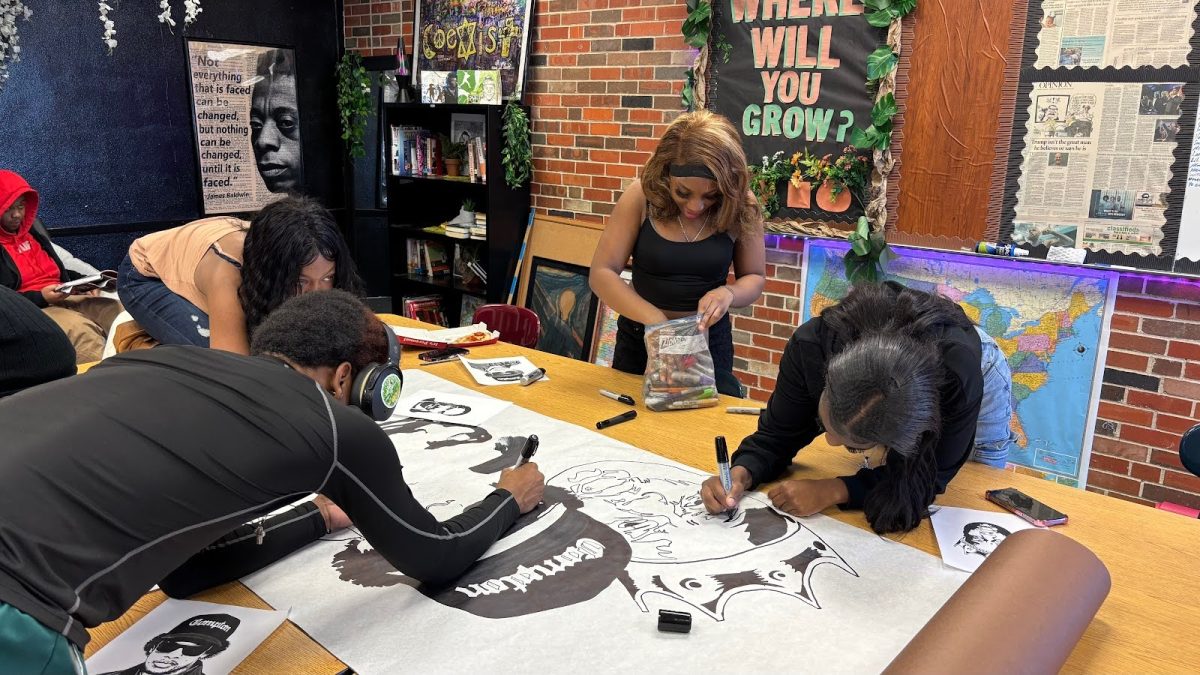The Standards Referenced Grading (SRG) journey that started over 10 years ago has now come to an end with the district phasing out SRG grade card reporting.
SRG was an initiative to change grading from a traditional percentage to a one-through-four score based on proficiency scales. These scales were created from Missouri Learning Standards and are implemented by grading assignments with rubrics.
A current emphasis in the district is educators focusing on teaching the Missouri Learning Standards. These standards are specific to each subject and outline what students need to know. The district is required by law to follow these standards.
“Let’s make sure we understand the standards, let’s make sure we teach them to our students,” Chief Academic Officer De’Vion Moore said.
English teacher Matt May talked about the impact the emphasis on teaching to standards has had on teachers.
“We’ve spent the past few years making sure that our content is meeting our standards and that we’re building off of these proficiency scales that we’ve developed, and ultimately, that’s what we’re assessing with every single assignment,” May said.
Moore explained that the confusion parents and teachers were having with SRG was causing emphasis to be taken away from teaching to the standards and towards reporting grades as a one-through-four-scale.
“We expect that we’re educating our students on those standards. And we’ve allowed temporarily for grading to be a barrier to that, and so rather than continuing to push through, you just have to take a little bit of a step back,” Moore explained.
The decision to stop going forward with SRG was largely to reinstate focus on teaching to the standards.
“We have to take a step back as leaders in the district and part of the team and say, ‘We got to make sure that we understand that part or we can never get to an accurate lens by which we can report our student learning,’” Moore said as he described the reason for the decision to stop SRG.
Biology teacher Shaina Van Remus explained that while the path grade reporting was going down is changing, the standards educators are teaching will not.
“Our goals for our students in terms of what they know is still going to be based on standards that we have…those will continue to kind of guide how we teach and what we’re teaching,” Van Remus explained.
One of the main goals of teaching to standards is to ensure that education is consistent across the district.
“We want to make sure it doesn’t matter where you are, that you’re getting the same academic outcomes and opportunities,” Moore said.
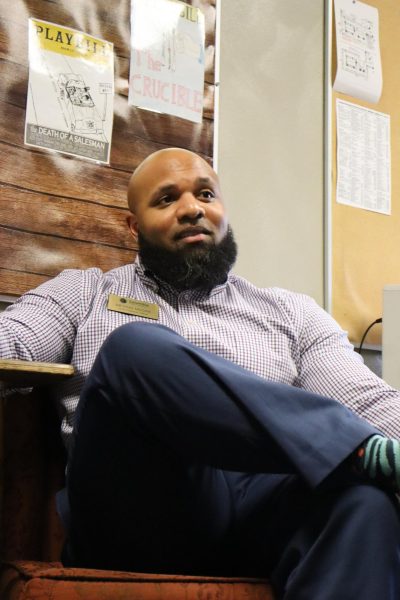
Another aspect of SRG is the “Workplace Readiness” category on grade cards.
This part of a student report is to help separate behaviors from academics because “behavior is not always indicative of what a student knows.”
Because of this, Moore expressed that educators cannot “conflate the two” so behavior will not be a barrier to success.
Moore felt sure that this part of SRG would stick around because of the import of this distinction.
“We want to make sure that we’re looking at it from the lens of what do we academically know versus what have we done from a behavioral or social perspective that has allowed [us] to increase [our] score,” Moore explained.
While the news of stopping SRG grade reporting was initially surprising for many educators, very little is changing at the high school level.
Many factors went into this decision according to De’Vion Moore. However, the biggest reason for the change was a lack of understanding from students, staff and parents.
“Teachers [were] giving us feedback about ‘hey, we need to make some things a little bit more simple so that we can communicate out to our families a little bit more clearly,’” Moore explained.
Government teacher Marcus McGuinn agreed that there was confusion about the SRG policies, but added that the opinions of the community likely impacted this decision as well.
“There was enough community backlash that leadership needed to reassess their approach, and there was not enough understanding amongst the staff and faculty that they could implement it well enough,” McGuinn explained.
Civics teacher Maxwell Batek spoke about the confusion and inconsistency over SRG policies among teachers. This could be seen through different subject areas being at different stages of implementation of SRG. English classes were starting to grade solely on SRG rubrics while science classes tended to have much less implementation of these policies.
“I don’t think the district was really that clear with their SRG policy while they were trying to do it. So it was a weird mix of some teachers using the one through four scale, while other teachers were still using A, B, C, D,” Batek said.
Moore related some of the feedback the district was getting from teachers about SRG.
“[Teachers said] ‘we need a little bit more explaining…before we can actually get to a space where we are effectively communicating our grades,’” Moore said.
There are also many new teachers in the district at the moment. These teachers needed more support from the district to feel comfortable with SRG grade reporting.
“Sometimes, that support looks like slowing down and going back to the foundation of what it is we are actually trying to accomplish without outpacing [the teachers] with regard to the amount of support we can give,” Moore explained.
Moore emphasized “focusing on teaching and learning” and not letting grade reporting interfere with those goals.
Although Algebra 2 teachers were one of the first to implement SRG scoring at the high school level, teaching with fully implemented SRG principles, Algebra teacher Jalen McGregor said that her teaching would not change significantly with the SRG change.
“[SRG has] kind of already affected my grading practices, because even though I’m not using that scale anymore, I still use those rubrics. And that still that line of thinking like when I’m grading,” McGregor explained.
Moore also appreciated the idea of an education system that wasn’t governed by “point grabbing,” but instead, focused on the value of learning itself.
“Let’s embrace teaching for the sake of teaching the students so that they can take those concepts and progress in their understanding of it. [And students], let’s embrace learning for the sake of learning,” Moore emphasized.
Veteran teachers expressed that they have seen initiatives like SRG come and go in the past.
“Several veteran teachers, when this was announced eight to ten years ago, said to me, that this will never happen. And they said that because they had seen it before through what was known at the time as Outcomes Based Learning,” McGuinn said.
McGuinn continued that while “the acronyms change” the idea “stays the same.”
McGregor expressed similar ideas about initiatives like SRG coming back in the future for CPS.
“There will be a whole new thing in a few years, I’m sure, that we’ll all do,” McGregor hypothesized.
At the end of the day, many are glad that CPS has issued a clear statement about the future of SRG implementation in high schools.
Batek said, “I’m just glad they finally figured out what they want to do.”

